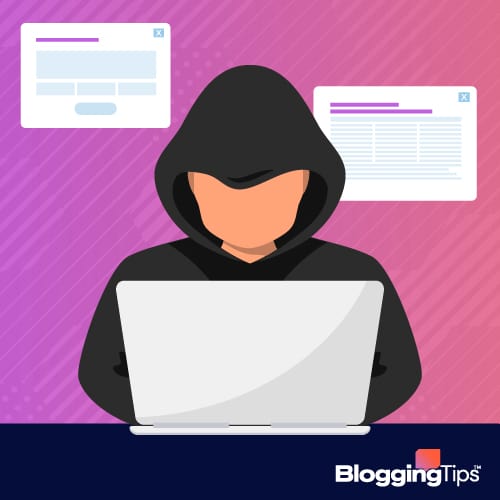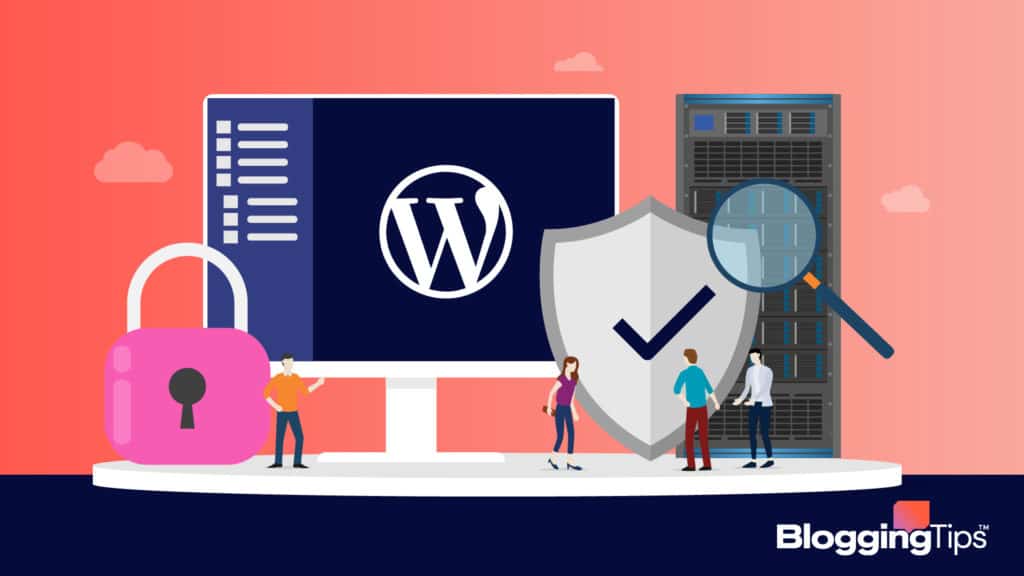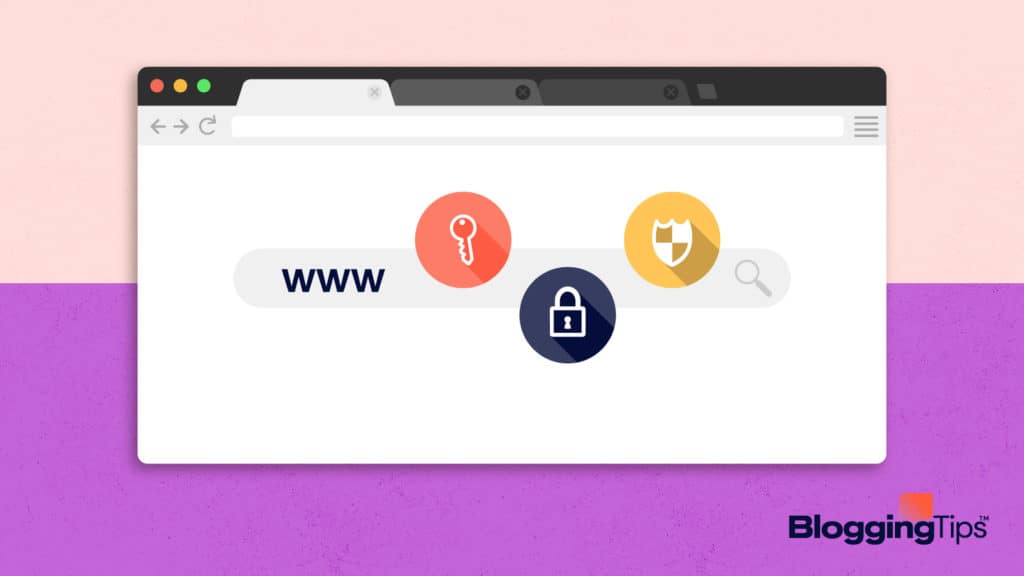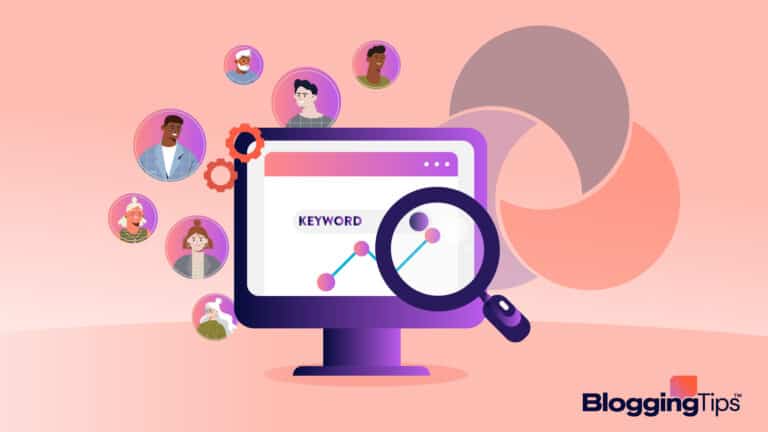Whether you’re new to blogging or have been doing it for years, one thing you need to be aware of is the importance of domain privacy.
Many people don’t think about it, but when you register a domain name, your personal information is attached to it and is a public record.
This means that anyone can look up who owns the domain name and view your contact information.
While this may not seem like a big deal, there are plenty of reasons why you should worry about your domain privacy.
In this article, we’ll discuss some of the dangers of not having private registration and how to go about protecting yourself.
- What Is Domain Privacy?
- Why Domain Privacy Is Needed?
- How Does Domain Privacy Work?
- Benefits Of Using Domain Privacy
- Some Risks Associated With Not Having Domain Privacy Enabled On Your Website
- Other Ways To Protect Your Online Identity And Personal Information
- Why Do You Need To Worry About Domain Privacy?
- Some Useful Terminologies
What Is Domain Privacy?
Domain privacy is a service that hides your personal information from the public domain.
This is important because when you register a domain, your personal information is automatically made available to anyone who does a simple whois search.
This private domain registration can lead to spam emails and even identity theft.
By using domain privacy, you can keep your information safe and secure.
You can purchase domain privacy from domain registrars.
A domain registrar usually charges an annual fee for the service.
In addition, domain privacy can also help to prevent domain hijacking.
This is where someone tries to take over your domain by changing the DNS settings.
By keeping your information private, you can help to protect yourself from domain hijacking and other threats.
So overall, domain privacy is a valuable service that can help you to keep your information safe and secure.
Why Domain Privacy Is Needed?
Domain privacy is needed to protect domain owners from identity theft, fraud, and spam.
By keeping domain information private, domain owners can avoid these threats and keep their personal information safe.
Additionally, domain privacy can help domain owners keep their domain names longer, as domain name squatters are less likely to obtain and use domain names that are not publicly listed.
Finally, domain privacy can reduce the likelihood of domain name hijacking, in which attackers take control of a domain name by changing its registration information.
By keeping domain information private, domain owners can protect themselves from these potential threats and ensure that their domain names remain under their control.
How Does Domain Privacy Work?
Domain privacy works by replacing your personal information with the contact information of the domain privacy service.
This means that when someone does a whois search for your domain, they will see the contact information of the domain privacy service instead of your personal information.
Benefits Of Using Domain Privacy
The benefits of using domain privacy are numerous.

It Can Help To Protect Your Personal Information
As we mentioned earlier, when you register a domain name, your personal information is automatically made available to anyone who does a simple whois search.
This can lead to spam emails and even identity theft.
By using domain privacy, you can keep your information safe and secure.
It Can Help To Prevent Domain Hijacking
Domain hijacking is when someone tries to take over your domain by changing the DNS settings.
By keeping your information private, you can help to protect yourself from domain hijacking and other threats.
It Can Help You To Keep Your Domain Name Longer
Domain privacy can also help domain owners keep their domain names longer, as domain name squatters are less likely to obtain and use domain names that are not publicly listed.
It Can Reduce The Likelihood Of Domain Name Hijacking
Finally, domain privacy can reduce the likelihood of domain name hijacking, in which attackers take control of a domain name by changing its registration information.
By keeping domain information private, domain owners can protect themselves from these potential threats and ensure that their domain names remain under their control.
Domain privacy is a valuable service that can help you to keep your information safe and secure.
Some Risks Associated With Not Having Domain Privacy Enabled On Your Website
There are some risks associated with not having domain privacy enabled on your website.
1. Availability Of Your Personal Information To Anyone
When you register a domain name, your personal information is automatically made available to anyone who does a simple whois search.
This can lead to spam emails and even identity theft.
2. Domain Hijacking
Domain hijacking is when someone tries to take over your domain by changing the DNS settings.
By keeping your information private, you can help to protect yourself from domain hijacking and other threats.
3. Loss Of Your Domain Name
If your personal information is publicly available, then someone can squat on your domain name.
This means that they can claim the domain name as their own and you could lose it.
Domain privacy is a valuable service that can help to protect you from these risks.
It can also help you to keep your domain name longer and reduce the likelihood of domain name hijacking.
Domain privacy typically costs around $10 per year.
This is a small price to pay for the peace of mind that comes with knowing your personal information is safe and secure.
Other Ways To Protect Your Online Identity And Personal Information
In addition to domain privacy protection, there are other ways to protect your online identity and personal information.

1. Use A VPN
You can use a VPN (Virtual Private Network) to encrypt your traffic and keep your data safe.
You can also use a VPN to hide your IP address and location.
2. Use Two-Factor Authentication
Two-factor authentication is an additional layer of security that can help to protect your accounts from hackers.
Finally, be careful about what you share online.
Don’t post personal information such as your home address or phone number.
And be careful about what you share on social media.
By taking these precautions, you can help to keep your online identity and personal information safe and secure.
Why Do You Need To Worry About Domain Privacy?
There are several good reasons to worry about domain privacy.
Domain Privacy Can Help To Protect Your Personal Information
First, domain privacy can help to protect your personal information.
When you register a domain, you are required to provide your contact information, contact details, and personal details.
This information is then publicly available, which means that it can be accessed by anyone who wants to find it.
If you have domain privacy, your contact information will be hidden, making it much more difficult for people to find and use it.
Domain Privacy Can Help To Protect Your Business
Second, domain privacy can help to protect your business.
If you have a domain that is associated with your business, you may not want people to be able to see your contact information.
This is especially true if you are worried about competitors finding out your business address or phone number.
Domain privacy can help to prevent this from happening.
Finally, domain privacy can help to protect your website from spam.
When your contact information is public, it is more likely that you will get spam emails and phone calls.
If you have domain privacy, your contact information will be hidden, making it much less likely that you will get spam.
In sum, there are several good reasons to worry about domain privacy.
By protecting your personal information and preventing spam, domain privacy can help to keep your online life much simpler and safer.
Some Useful Terminologies
Below is the list of some useful terms that are used in the above article and will be helpful to you:
- Domain Privacy Protection: Domain privacy protection is a service that can help to protect your personal information.
- Domain Name: A domain name is the address of your website.
- Domain Name Hijacking: Domain name hijacking is when someone claims your domain name as their own.
- WHOIS Database: The WHOIS database is a public record of all the domain names that have been registered.
- IP Address: An IP address is a unique number that identifies your computer on the internet.
- General Data Protection Regulation: The General Data Protection Regulation (GDPR) is a set of regulations that were passed in the European Union in 2018. The GDPR requires companies to protect the personal data of EU citizens.
- Domain Ownership Protection: Domain ownership protection is a service that can help to protect your domain name from being hijacked.
- Domain Name System: The Domain Name System (DNS) is the system that converts domain names into IP addresses.
- Domain Name Registrar: A domain name registrar is a company that registers domain names.
- SSL Certificate: An SSL certificate is a type of security certificate that helps to protect your website from hackers. It ensures website security.
- Hackers: Hackers are people who try to gain access to computers and networks without permission.







